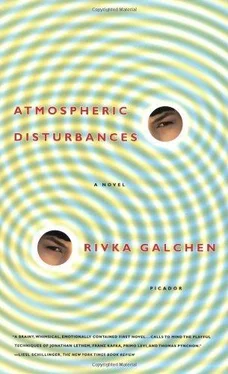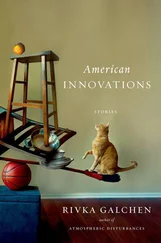As most readers of
Journal of the Atmospheric Sciences
know, Dr. Tzvi Gal-Chen was its co-chief editor for about two years before his sudden passing in October 1994. He was also an influential and stimulating atmospheric scientist and a warm and much-loved human being. As his close friend and colleague, I accepted the task of standing in for him at the
Journal of the Atmospheric Sciences
for a year and also of collecting and editing papers for a special issue of the journal to be published in the month of his birth.
Tzvi aspired to be a multidisciplinary scientist, with interests and activities in largescale, mesoscale, boundary layer, and climate dynamics, and with a strong emphasis on remote sensing analysis techniques. As most working scientists know, “multidisciplinary” is a favorite word and expectation of administrators and journalists, but it is often regarded with suspicion in the academic community. Tzvi’s earthy way of saying it was, “A multidisciplinary scientist had better be an expert in at least two disciplines, or else he is a charlatan.”
I am not a great fan of special issues of an archival journal like the
Journal of the Atmospheric Sciences
Sometimes the papers are premature, excessively delayed, warmed over, or accepted largely on the basis of their presentation at a conference. I agreed to edit this one on the understanding that the papers, though solicited to some extent, would be fully acceptable to the
Journal of the Atmospheric Sciences
under any conditions and that their subjects would be as broad as Tzvi’s interests. The result is a nice mix. It includes one paper coauthored by Tzvi as the advisor of a doctoral student; two other papers authored at the University of Oklahoma; another by a close former associate using Tzvi’s work as part of the foundation; three papers on geophysical fluids, including a major work in planetary science, an area which Tzvi was associated with in his earlier appointment at NASA; a paper on data assimilation; a paper on TOGA COARE, which was the last observation project in which Tzvi participated; and a boundary layer paper. I feel that all these are contributions that Tzvi would have liked to read. I must admit that in some cases the reviews and authors’ revisions were slightly accelerated to meet the publication deadline. I hope and believe, however, that this issue will be found worthy of the high standards of the
Journal of the Atmospheric Sciences
and stand as a small but fitting memorial to Tzvi.
Douglas Lilly
University of Oklahoma
The simulacrum sat expectantly at the bed’s edge, with her hands between her knees in that inadvertent prayer position kind of way, waiting for me to read the document. I found myself reading the document over several times. Yes, before looking up I had read it several times and so understood it quite well. When I made eye contact with the blonde, she tilted her head at me, like a puppy. There was then a pregnant pause for language, a repressed face-off of sorts, for who was going to begin with the speaking, me or her. I tilted my head in the opposite direction that the blonde had tilted her head, which thought of in a certain way is the same direction, like in a mirror. And the silence continued from that angle, but I’d like to clarify that it was not a reverent silence that was being maintained, not on my part, not a silence in the face of the greatest of mysteries. This “mystery” that the simulacrum had presented me with — in its own way — well, it was so very small . All she was trying to say was that Tzvi GalChen was dead, and that we should therefore find it strange that I had communicated with him. At least, I think that was all she was trying to say. But that had become, for me, maybe the least of many mysteries, one that mattered to me only as a door to other possibilities, only as a passage through which I followed. Not as a thing unto itself.
The simulacrum tilted her head in the other direction and then, with an excess of gentleness in her tone, she asked me what I thought “this Tzvi Gal-Chen character that you have been communicating with”—she wanted to know what I thought he might think of this memorial issue of Journal of the Atmospheric Sciences .
I pointed out the problems inherent in such projective hypothesizing.
The simulacrum reasked me the same question. What did I think “this Tzvi Gal-Chen character” would think?
I answered that I thought it would be rather rude to ask such a question of “this Tzvi Gal-Chen character.” I regretted employing the diminishing terminology that she — rather inappropriately — had taken to using.
What do you mean it would be rude to ask? she wanted to know.
I said that a feeling I’d often had was that it would be awkward to talk with people about their deaths after they’d died. There might not be much to say about it.
She said that what I was saying didn’t make sense.
You mean it doesn’t make sense to you , I clarified.
No, no, no, no, no, she said, standing up, moving too close to me, talking right into my face, her body so close that I thought I could feel the air move out of her way. She went on: “It doesn’t make sense to anybody , at least not to anybody else that I know,” she said, infected, I believe, with my admirable tendency to qualify. “Not even to Harvey. It’s just you,” she continued. “Doesn’t that make you wonder when something is just only you?”
“I didn’t come up with this craziness,” I said. “It came to me, not from me.”
22. Conclusions and future work
Toward the end of his retrievals paper Tzvi wrote: “Are these errors a reasonable simulation of those actually present in Doppler radar data? Is there any way to recover useful information from the resulting fields?” Naturally these questions came to mind when I was deciding whether or not to return with the simulacrum to the apartment that I shared with Rema.
Let’s say that I agreed to return, that she agreed to return with me. We arrive. I imagine the apartment will smell musty and she’ll open the windows and cold blasts will compete with one another through the length of the space; the curtains will billow. The thin dog — who will return her? — will retreat to the simulacrum’s lap for warmth. An old newspaper will be out on the coffee table, as if still important, something circled in red pen. The bed will not be made. Four spoons and a glass will be sitting unwashed in the sink. Not sure how to behave, I will offer to make tea. The click-click of the gas stovetop will make a nice contact sound as I set the teakettle to boil. I don’t want tea, she will say. So if you’re doing that for me, don’t do it, she will add. I’ll ask her if she wants coffee. She’ll say no. Hot milk? Do you want to rent a movie? Go for a walk? Eat chocolate? Lie under covers? She’ll be inconsolable and I’ll find myself curiously dedicated toward her immediate consolation.
“Sometimes you’re not very mean,” she’ll concede, eventually, after dozens of suggestions.
We’ll go out for dinner, which Rema and I never do, and the dinner will be okay. The butter will be unusually good, but neither of us will speak much, and I’ll order a hamburger in an attempt to be cheap and will regret it. She’ll finish less than half of her lamb. I’ll mention something I saw in the newspaper — young Turks’ voting patterns maybe, or the mummy of Queen Hatshepsut — and she will say that she also saw that — whatever it might be — in the newspaper, but we’ll fail to turn our mutual reading into a conversation. When we decide to return home, the nearby subway station will be closed; we’ll walk ten blocks to an open station and then descend and wait. She’ll say she doesn’t believe the train will ever come. I’ll assure her that she is right, that the train will never come and that also the gates will close, and we’ll be locked in the station, and she’ll say that she is just so tired and regrets ever having thought that she wanted to go anywhere. Then the train will come; there will be plenty of seats; she’ll lay her head on my shoulder. And in the dark glass of the subway car I’ll see this gentle sleepy her leaning on me. We should have had pizza, she’ll say. Even though there’s no good pizza in the neighborhood.
Читать дальше
Конец ознакомительного отрывка
Купить книгу












